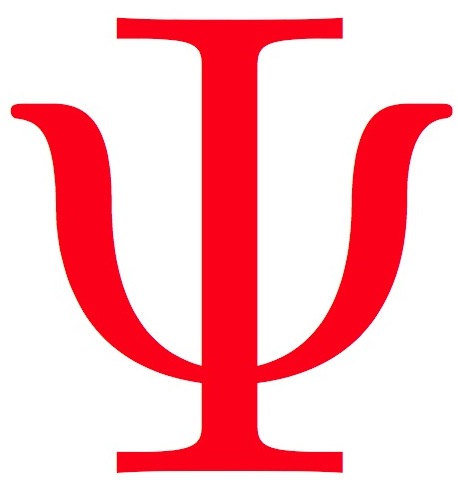Decoherent Histories Quantum Mechanics
Fundamentals
This page is devoted to papers explaining DH in the approximation that gross quantum gravitational fluctuations in the geometry of spacetime can be neglected. Then a model for a closed system is a very large, perhaps expanding, box containing matter fields moving in a fixed spacetime geometry. That is the simplest starting point for exposition.

Expositions
The author has written a number of general expositions of decoherent histories quantum mechanics. They are presented below. There is a considerable overlap between these. They are listed roughly with the simplest first and the most detailed later.
The Quantum Mechanics of Closed Systems [98]
A compact pedagogical introduction to decoherent histories (DH). This is usually what the author recommends for those who are unacquainted with the subject or have only a passing interest.
Quantum Mechanics in the Light of Quantum Cosmology [87]
(with Murray Gell-Mann) This is the original paper by Gell-Mann and the author on decoherent histories quantum theory.
Introduction to Decoherent Histories [LesHouches1-3]
These first three chapters from the author's Les Houches Lectures are a more extended exposition than those above. For the whole set of lectures see [97].
The Quantum Mechanics of Cosmology [jerexcpt]
Another exposition of DH from the author's Jerusalem lectures. For the whole set of lectures see [91].
Limiting Cases
The Copenhagen Approximation [Cop]
Copenhagen quantum mechanics is a highly successful framework for physical prediction. It is not an alternative to DH. Rather it is contained within DH as an approximation appropriate to measurement situations. Two excerpts from various lectures show how this approximation comes about.
The Quasiclassical Realm [qcrealm]
A formulation of quantum mechanics like DH that does not posit the quasiclassical realm of everyday experience must explain the wide range of time, place, scale and epoch on which the laws of classical physics hold to an excellent approximation. There is a whole separate page [qcrealm] devoted to explaining this.
Ramifications and Consequences
Alternative Decohering Histories in Quantum Mechanics [94]
This sequel to [87] introduces a variety of ideas directed toward the characterization of quasiclassical realms in quantum mechanics by quantifying concepts like strong decoherence, records, maximality, and classicality. The notion of a full set of decoherent histories is introduced whose branch state vectors exhaust Hilbert space.
Equivalent Sets of Histories and Multiple Quasiclassical Domains [103]
(with Murray Gell-Mann) This paper describes notions of physical equivalence between different sets of histories in DH. The same set of histories can be relabeled in various ways, including the use of the Heisenberg equations of motion and of alias (passive) transformations of field variables. A triple consisting of an quantum state, a Hamiltonian, and a set of histories is physically equivalent to another triple if the operators representing these initial conditions, Hamiltonians, and histories are related by any fixed unitary transformation. This result is contrasted to the notions of equivalence in the Copenhagen formulation of the quantum mechanics of measured subsystems. The results to the question of whether the universe might exhibit physically inequivalent quasiclassical realms not just the ones that includes familiar experience.
Reduction of the State Vector and Limitations on Measurement [100]
Measurement is a fundamental notion in the Copenhagen quantum mechanics of measured subsystems but not in DH. This essay addresses the question of what features of Copenhagen quantum mechanics related to measurement are incorporated or modified in DH. Reduction of the state vector is a necessary part of the description of such histories. Uncertainty principles limit the possible alternatives at one time from which histories may be constructed. Models of measurement situations are exhibited within the DH containing both measured subsystem and measuring apparatus. Limitations are derived on the existence of records for the outcomes of measurements when the initial density matrix of the closed system is highly impure.
Conservation Laws in the Quantum Mechanics of Closed Systems [105]
(with R. Laflamme and D. Marolf) This paper investigates conservation laws in DH. Exact decoherence implies the exact conservation of quantities that commute with the Hamiltonian including the total energy and total electric charge. But decoherence limits the alternatives which can be included in sets of histories which assess the conservation of these quantities when they are not coupled to a long-range fields arising from a symmetry principle. The realistic cases of electric charge coupled to the electromagnetic field and mass coupled to spacetime curvature are examined. When alternative values of charge and mass decohere, they always decohere exactly and are exactly conserved as a consequence of their couplings to long-range fields. While histories that describe fluctuations in total charge and mass are subject to the limitations mentioned above, these do not restrict physical alternatives and are therefore not really limitations at all.
Comment on ``Consistent Sets Yield Contrary Inferences in Quantum Theory [118]
(with Robert Griffiths) This comment addressed the logical consistency of DH. It was a response to a paper of Adrian Kent who correctly pointed out that in DH it is possible, given initial and final states, to construct two different consistent sets, in each of which there is a proposition that can be inferred with probability one, and such that the projectors representing these two propositions are mutually orthogonal. Bur according to the rules of DH two such propositions are not contrary in the usual logical sense: namely, that one can infer that if one is true then the other is false. No single consistent family contains both propositions, together with the initial and final states, and hence the propositions cannot be logically compared. There is no logical inconsistency.
Quantum Mechanics and Human Language [136]
Human language is naturally adapted to the quasiclassical realm that almost entirely describes everyday experience. Care is therefore necessary when using human language to describe DH which in general has many mutually incompatible decoherent sets of histories. The surest route to clarity is to express the constructions of human language in the the language of DH, not the other way around.
